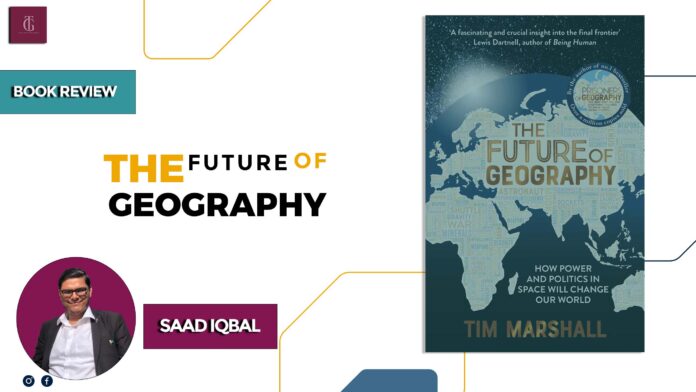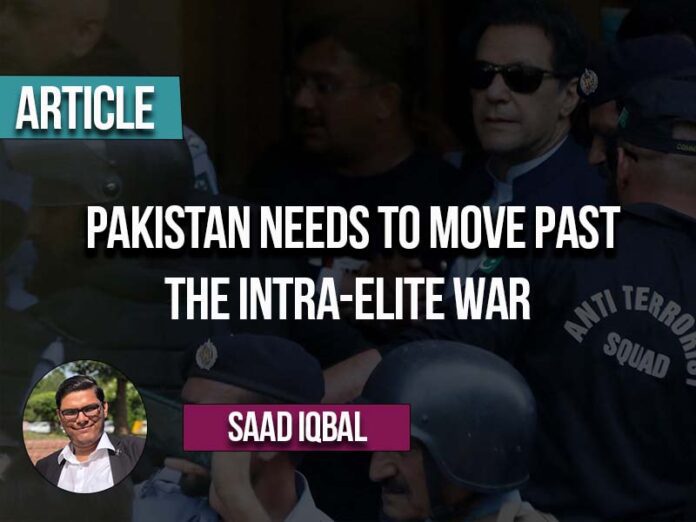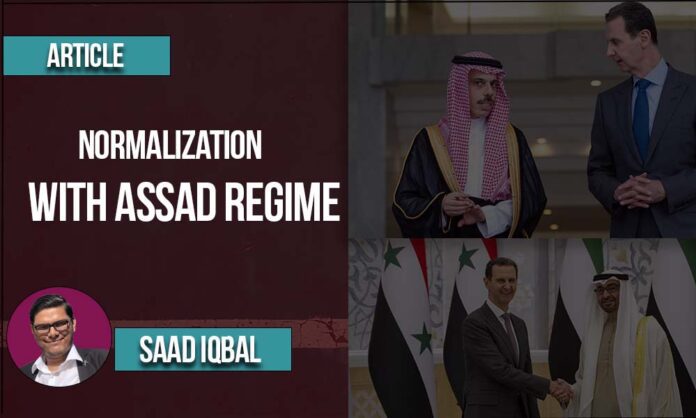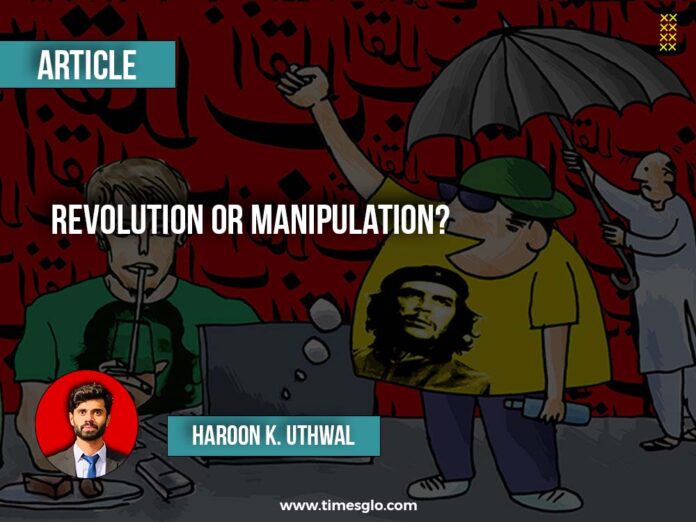The Multipolar World Ahead: The Rise of New Great Powers and the Future of International Affairs
Introduction
As the world moves on in the 21 century, the number of influential international players is growing rapidly and the scenario is transmogrifying from a uni and bipolar world towards a multipolar world based on amateur rising powers in different world centers. With the rise of new powers in the international arena, the absolute and relative power of the US and its ally Europe is also declining. The world is seeing new power centers in different regions and with the back of the small state of regions, they are becoming a power to reckon with in the new geopolitical milieu. This is not unprecedented and the world has seen multipolarity before as in the 17th and 18th centuries, however, the time the balancing act of powers would be more stable.
Despite strong arguments from Western scholars about American superiority and its capacity to influence others, Russia-Ukraine War, US withdrawal from Afghanistan, autonomy of Middle East and Chinese assertion in the Pacific have exposed the US and its Allies’ failure to dictate amateur powers. The phenomenon is not recent, but Henry Kissinger recognized the rise of powers four decades ago and as a political realist he views it as beneficial for world peace. While recent trends are against the absolute power of the US and the West, it is not posited that role of the US would be vanished. Instead, the US would remain in great power in the near future however, its power would relatively decline greatly as the regional players collude against it as the case appears. Looking at recent trends multiple regional players are going to become great power centers in world affairs in the future.
Rise of New Power Regions
It is not just China that the US considers a threat to American hegemony as Biden Doctrine accentuated that it needs to curb China’s dominance but, the US has to face confrontation in terms of economic and policy matters regarding world affairs from other regional powers too. There are multiple regional centers that are emerging as great powers. Before we delve into multipolar discourse, different regions must be highlighted which are going to become important in world affairs.
To start with American Continent, the US and Canada are one bloc with considerable influence over the Latin American states. However, Brazil appears to be challenging the US dominance with the support of dissent powers against the US absolute dominance in the American Continent. Brazil is part of BRISC which is a powerful alliance in terms of economic cooperation and other matters of world interest. That means that Brazil would have much sway in matters pertaining to South American states. Secondly, Western Europe is detaching itself from the United States and asserting its own independence and autonomy. It is evident from a long time ago but now, European leaders are openly asserting their independence in affairs of the world. European dealing with Russia concerning Russia-Ukraine war has made it explicit that European interests are paramount against her long-time ally the US.
The third important region is the Middle East with vast natural resources, especially oil and gas. It is not only the centre in terms of rapidly developing new economies but is also the centre of the Muslim world which surpasses 2 billion threshold. Recent rapprochements between die-hard enemies have given the green light to it becoming great powers centre. The fourth region is Central Asia with Russian dominance over sparsely populated but densely mineral-resourced Muslim states. This region is emerging as the energy centre of the world.
The fifth region is Indo-Pacific which contains powerful economies such as China, India and Japan. This region is most important as it is in direct confrontation with the US and is most concerned with the world’s peace. African Continent should also be considered as a separate power region as many countries are asserting their independence from Western Influence and siding or collaborating with China and Russia.
New Players in the Regional Centers
As it is aforementioned, new regions are emerging as great power centers. These are based on or around a few rising states that have achieved the status of being developed and are moving to become great powers based on their economic might and the centre point of the region’s small states. Firstly Brazil is becoming a new regional power in South America. It has vast land with a rapidly surging population. The economy is going well despite political doldrums. That is why Brazil is being considered an important new player in world affairs and it is also part of BRISC.
Secondly, Saudi Arabia and Iran are great powers in the Middle East. The recent rapprochement between the two and their allies in the regions shows that these two states would act in consortium reminiscent of Germany and France in Europe. Turkey would be influential player in the world affairs due to its strong economies and great Muslim heritage. For the first time since the revolution, it is evident that the rulers of these states are serious about achieving the role of great powers. Both Saudi Arabia and Iran have huge natural resources and are centers of the Muslim World which give them more capital of becoming great powers pushing the world towards multipolarity.
Thirdly, China and India are two great powers that are the new centers in the Indo-Pacific with number of rising economies in East Asia. India is part of the BRISC and Shanghai Cooperation Organization and influential player in South Asia. It has a big tech industry and a rapidly modernizing economy. China is not only regional power in Indo-Pacific but a great power that is contending with the US which would be discussed separately below.
Fourthly, Russia is holding firm despite sanctions from the US. It makes clear that Russia has the support of its neighbours in Central Asia or its neighbours are not supporting NATO because, for the first time since 1991, white people are killing white people. Central Asian republics are becoming major energy sources which is why they are emerging as distinct following Russian footsteps. Fifthly, North or Whole Africa also needs a special separate mention as its countries unite under African Union. South Africa is part of powerful alliance BRISC. West and the US are too well known to recur here.
Future of American Power
After the defeat of the NATO forces at the hand of the Taliban and the haste withdrawal of the United States from Afghanistan, The Economist started a series of opinion articles on the future of American Power and it can be inferred that the US lost its credibility to a great extent. Kissinger argued that the US failed to define goals explicitly. It not only lost its strategic focus but its objectives were absolute and elusive based on abstract Utopian visions without contemplating the history and culture of Afghanistan. Despite all these mishaps, Kissinger accentuated that America would remain a key component of the international order.
Paul Kennedy argues that the relative strength of the US is declining. It is now one of the biggest gorillas among multiple gorillas and China is going to be the biggest challenge for the US. The future of the US would not only depend upon its military strength but technological advancement and economic development. America would find it difficult to finance its high position in future, ergo it would be very challenging for the United States whether it can sustain its great power position in the long run. So it can be inferred that American Power in the future would not be absolute and it would have many contenders.
It is not argued here that the American power would vanish like other great empires such as Ottomans or Nazi Germany but the institutional setup of the United States is firm and it would take time even to contract its muscles from the world. It will be the key component of world order in the Pacific and the Atlantic. Its industrial might and economic power would remain stable in the near future but it has to reconcile multiple new centers for technology and economics.
The Chinese World Order
The United States considers China as its biggest contender as stressed by Biden Doctrine. But its biggest threat is Climate Change. War with China can not destroy America but Climate Change can. It is because China has a long history of peaceful coexistence. It is intriguing that the Chinese never carried genocide against the people they invaded instead they cooperated with them and established trade relations, unlike colonial invasions of the West and the US. Paul Kennedy asserts this feature in his book, ‘Rise and Fall of Great Powers: Military Conflicts and Economic Change Since 1500-2000’ and notes that China does not have a history of the murder of people in an alien land. Chinese emphasis on peaceful existence is winning a many great friends in world.
In terms of economics, China is establishing Belt and Road Initiative which also includes CPEC. The purpose of the project is to create easy excess to the countries and increase trade and commerce. China does not want to play proxy wars and respects international law. It has recently carried out and succeeded in establishing relations between Iran and Saudi Arabia. President of China1 also carried out a visit to Russia to emphasize dialogue to end the conflict with Ukraine. It is unprecedented in history. Chinese believe in World Order is that of peaceful coexistence based on economic cooperation and respect for the sovereignty of the states as against the unipolar hegemonic designs of the United States. So the new powers would definitely support the Chinese viewpoint and multiple players would be enrolled in great power politics balancing each other.
The Case for Multipolar World
As the new regions are developing rapidly, the states leading them are also asserting powers in international affairs. It is the first time since the Second World War that Europe is detaching itself from the US. Macron has made it clear that Europe should resist the pressure to follow in American footsteps. He believes in the European superpower led by France. Despite the US sanctions European states did not cut off ties with Russia following Russo-Ukraine War despite American duress. So the European Union is a distinct great power in the multipolar world. Brazil which has a surging economy and stable political situation in the country has also asserted autonomy in case of a Ukrainian invasion. President Lula da Silva criticised the US and West for giving weapons to Ukraine which would prolong the war and also in part blamed Ukraine for the conflict. It shows that Brazil possesses its own viewpoint on world affairs and does not support one power’s dominance.
Russia, despite sanctions from the US and West, remains stable because it has intact trading relations with other countries such as China, India and the Middle East. That shows Russian credibility in the world states other than the US followers wanting to deal separately with Russia. Saudi Arabia and Iran have had tense relations with the US since the Biden administration assumed the reigns of power in America. Both have resisted American pressures and stood firm. Muhammad Bin Salman is a rising leader in the world and is greatly admired for his modernist vision for the Middle East. So the Middle East would also emerge as a great power in the multipolar world.
India is also a rising power with a great huge market and surging economy and it has earned great respect in the last two decades and is emerging as great power in the multipolar system. China is not only a power in itself but it is also a supporter of the multipolar world. As discussed above China appears to be not carrying any absolute hegemonic designs, unlike America. Moreover, the rise of new regional and intra-regional organizations such as BRISC, ASEAN and Shanghai Cooperation Organization seconds the argument that the future of international affairs is a multipolar world.
Conclusions
With the arrival of multipolar world it looks like the world was never unipolar as Shafqaut Rabee noted in The Business Standard News aptly noted, ‘If you read human history over centuries prior to 1900, you would realize that the world was never unipolar, nor was it bi-polar. The world, rather, has always been multipolar — where local hegemons shaped geopolitical affairs within their respective vicinities, with occasional, and often consequential, conflicts with newly arrived external forces, often resulting in historic realignments.’
The rise of China, new relations in the Middle East, European autonomy with regards to the affairs of Europe , African independence from colonial heritage, Brazil and Indian economic rise and the decline in the American credibility explicitly make point for the rise of multipolar world. With the rise of these competing economies, relative decline of the American power and Chinese assertion of its power in the world affairs the world is moving toward multipolarity. In the coming era, the issue of the world would be decided not by one hegemon power but multiple great powers taking on board their regional allies.













